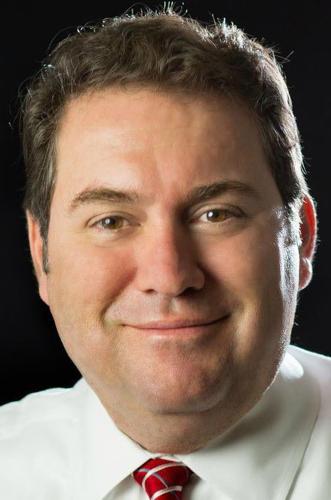PHOENIX — Attorneys for three state officials told a federal judge Friday the Tohono O’odham Nation has no right to sue them in its bid to open a casino on the edge of Glendale.
In one legal brief, the lawyers for Gov. Doug Ducey and Attorney General Mark Brnovich said the pair don’t belong in the lawsuit filed by the tribe because neither has the power to give it what it demands: A court order directing the pair to let the facility open later this year.
Brett Johnson, the lead counsel for the pair, said that decision is to be made by Daniel Bergin, director of the state Department of Gaming, who also was sued.
Matthew McGill, who represents Bergin, did not dispute that it is the gaming director who gets to decide whether to issue the necessary licenses for casino gaming. And that would make him the person who would be subject to a federal court order directing that he allow the facility to open its doors.
But McGill said the state is immune to lawsuits from the tribe in federal court. He said the tribe’s decision to name the three state officials individually instead of the state does not cure that legal defect.
Beyond that, McGill told U.S. District Judge David Campbell the federal Indian Gaming Regulatory Act gives states the final say over casino gaming within their borders. He said federal law cannot require states to issue the necessary regulatory approval for casinos.
McGill said if the tribe thinks it was wronged, its legal recourse would be a claim that Bergin’s refusal to license the new casino violates the terms of the compact the state signed with it after voters in 2002 approved Proposition 202. It gave tribes the exclusive right to conduct gaming in exchange for a share of the profits.
But McGill said that would require the tribe to claim breach of contract. And he warned that if the tribe filed such a claim the state would counter that the tribe got that contract through fraud, making the deal unenforceable.
It is that fraud allegation that is at the heart of the tribe’s lawsuit over Bergin’s refusal to license the casino.
The compacts and the 2002 law set limits on the number of casinos that tribes can have and where they can be located. It was sold to the public on the premise that gaming would be limited to existing reservations.
But there also was a provision in the deal, never publicized, that allowed tribes to have gaming on lands subsequently made part of a reservation as part of any land settlement with the federal government.
The importance of that remained unknown until 2009 when the Tohono O’odham Nation announced it had previously purchased, under a corporate name, a parcel of land near the Cardinals stadium on the edge of Glendale.
It eventually received permission from the Department of Interior to have it made part of the reservation, a precursor to casino gaming.
It got to do that because of a 1986 law compensating the tribe for the loss of nearly 10,000 acres of reservation near Gila Bend when a federal dam project flooded the property. That settlement not only provided cash but entitled the tribe to purchase replacement property in Pima, Pinal or Maricopa counties.
Ruling in an earlier lawsuit filed against the tribe, Campbell said it is possible tribal officials did not disclose any plans for a casino during the 2002 contract negotiations or ahead of the public vote. But he said the plain wording of the contract, which officials from the state and other tribes negotiated and signed, clearly gives the tribe the right to do what it plans.
This new lawsuit stems from the fact that Bergin now contends he does not need to allow the casino to open because of that withheld information.
In a letter to the tribe, he said it “engaged in deceptive behavior” and that makes the tribe unfit to operate a new casino.
The tribe responded by filing suit, asking Campbell to declare Bergin’s actions illegal and order him to provide the necessary certifications to operate the casino.
A hearing on the lawsuit is set for next month.







